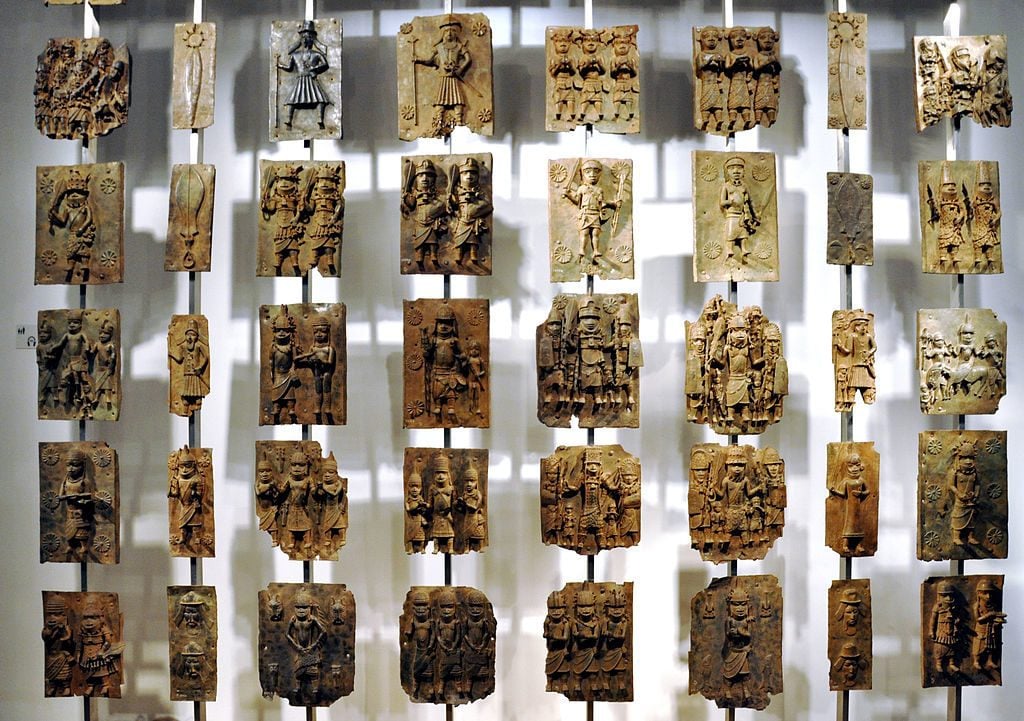Art World
Have You Seen a Benin Bronze in an Art Museum? The ‘Guardian’ Launches a Campaign to Locate and Return African Art
The newspaper is looking for information on Benin bronzes held in small institutions around the UK.

The newspaper is looking for information on Benin bronzes held in small institutions around the UK.

Naomi Rea

The British Museum and other UK institutions with Benin bronzes in their collections are facing growing pressure to return them to Africa. Now, the Guardian newspaper has increased the heat by launching a public appeal to map the location of sculptures looted by the British in the late 19th century.
The campaign focuses on the bronzes plundered in the raid on Benin City in 1897, which is now part of southern Nigeria. The newspaper asks for images and information about the history of each piece spotted. The announcement of the campaign comes hot on the heels of a Cambridge University college deciding to return a Benin bronze cockerel to Nigeria that has been in its possession since 1905. It was removed from display in 2016 after a student protest.
An increasing number of museums in the UK and beyond acknowledge the punitive raid on Benin in their displays of the bronzes. The Benin Dialogue Group, which includes representatives from institutions in Africa and Europe, has been meeting to discuss ways to tackle the colonial legacy. European museums prefer to talk about short- or long-term loans rather than restitution, which critics have described as a post-colonial attitude.
As the conversation around the restitution of objects taken during the colonial era grows, Nigeria is planning to build a museum to house the artifacts it hopes to retrieve from Western nations. The British architect David Adjaye is tapped to design the new Benin Royal Museum in Nigeria.
A number of Europe’s largest museums have agreed to loan works to the new museum, which is slated to open in 2021. This includes the British Museum, which holds around 400 objects from Benin, just some of the 4,000 artifacts that were looted by the British troops.
Other UK museums, including London’s V&A, and Horniman Museum, the University of Oxford’s Pitt Rivers Museum, National Museums Liverpool, and the National Museum of Scotland in Edinburgh hold similar objects. But there is not much known about how many Benin bronzes are held in smaller institutions around the UK. The Guardian has created an online form and has set up a tip line to help gather information about precisely that.
“Academics believe that hundreds of items taken during the expedition are held in city museums, art galleries, universities and in private collections all over the UK,” the Guardian writes. “We’d like to start locating these objects, and mapping their journeys to Britain – and we need your help.”
The information appeals to people who know of an institution or organization that holds bronzes and other treasures from Benin. It asks them to tell the paper where it is, what it is, and whatever is known about its history. So far the mapping exercise does not include the many objects from Benin that were sold by the British government and are dispersed across Europe and the US. The Louvre Abu Dhabi recently purchased examples, but declined to reveal their provenance.
The Guardian’s campaign comes one year after the release of a historic report commissioned by the French president Emmanuel Macron from two academics seeking advice on how to deal with colonial artifacts in French national collections. The French art historian Bénédicte Savoy and Senegalese academic writer Felwine Sarr reported back that the country should return all objects taken by force during the colonial era to their places of origin. Sarr has accused the British Museum of having an “ostrich-like” attitude to the issue of restitution of African art.
Macron got the ball rolling by quickly agreeing to loan back 26 bronzes held in the Quai Branly–Jacques Chirac Museum, which were looted during an earlier bloody siege from French troops on the Béhanzin palace in 1892. The works are being sent back on a temporary basis while officials study how to implement the restitution into French law, which currently protects the objects in its national collections with “inalienable and imprescriptible” rights. There are an estimated 5,000 Benin artifacts in French museums.